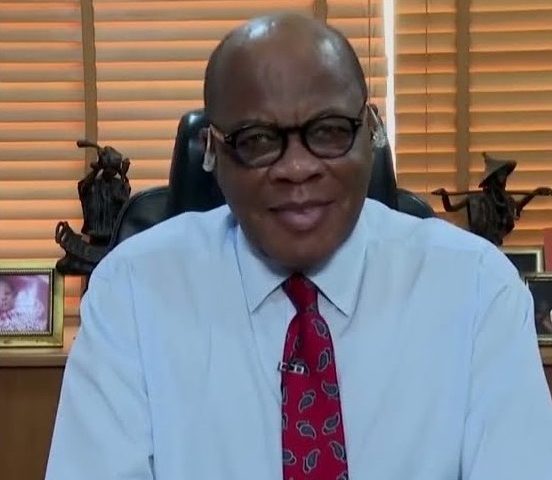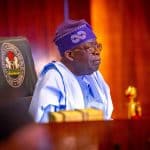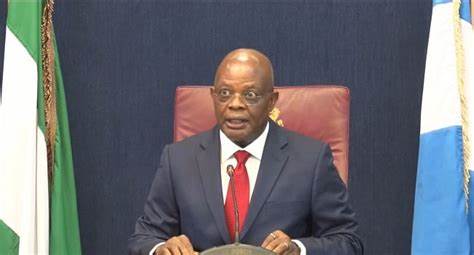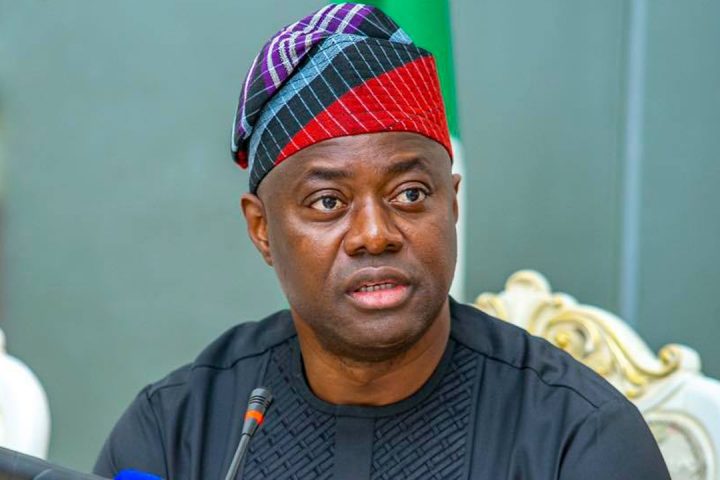Nigeria’s Inflation Rate Wreaks Havoc on Education Sector
As inflation continues to rise in Nigeria, private schools across the country face significant financial challenges. With a current headline inflation rate of 32.7%, the burden on educational institutions, teachers, and parents has grown heavier.
Rising prices in virtually every aspect of education have pushed school owners, parents, and teachers into a state of frustration and financial instability.
Join our WhatsApp ChannelThe Financial Weight on Private Schools
Inflation’s impact on schools is glaring as tuition fees and operational costs soar. According to Adewale Bello, the proprietor of Matol Senior High school in Oshodi, Lagos, the situation has become “increasingly difficult” to manage. “We’re buying fuel at prices we never imagined – N1,200 per litre – just to keep our school running with power,” he explained. “It’s unsustainable, and we’re forced to increase fees, but it’s not that simple. Parents are struggling too.”
Bello’s statement reflects a widespread sentiment in the sector. Running costs for items like fuel, which used to be manageable, have more than doubled in the past year. Private schools, heavily dependent on consistent electricity for their facilities, find themselves spending disproportionately on power, especially in areas with unreliable supply.
Gbenga Olufemi, another school owner, provides insight into how inflation is altering the educational landscape. “Many small private schools will not survive this inflation crisis,” Olufemi observed. “The cost of running a school is rising faster than the fees parents are willing or able to pay. This inflation rate is creating chaos among parents and schools alike. The cost of running my school for a day is more than N100,000 for essentials. If you multiply for a month you willl find out we are spending a lot”
Price Hikes in Learning Materials
Another significant consequence of Nigeria’s inflation rate is the spike in the cost of learning materials, including textbooks, notebooks, and other essential supplies. These items, vital to students’ daily learning, have become luxuries for many families. Parents like Ngozi Okoye are experiencing this firsthand. “It’s ridiculous how much we’re paying for textbooks,” she said. “A set of books for my daughter’s grade used to cost around N15,000 last year. Now, we’re looking at over N60,000.”
Teachers, too, feel the weight of inflation. Mercy Adeyemi, a teacher at Keen Schools (both primary and secondary) in Oshodi, shared how the increase in textbook prices has affected classroom dynamics. “Parents complain when we ask them to buy materials,” she said. “It creates tension between the school and the parents, but without these materials, our jobs become harder. We’re caught between supporting our students and managing these rising costs.”
Parents Bear the Brunt of Rising School Fees
The situation isn’t just impacting schools and staff; it’s hitting families hard. As private schools attempt to stay afloat, tuition fees are rising across the board. For parents, especially those already managing tight budgets, this is a source of significant concern. In response, some parents have chosen to move their children to government schools, while others are forced to make financial sacrifices in other areas.
READ ALSO: Bitter Pills To Swallow: Nigeria’s Inflation Rate Sparks Crisis In Medicine Prices
Chinwe Eze, a parent of two students at a private school, highlighted the challenges she’s facing. “We’re paying 30% more in school fees this term than last,” she lamented. “My husband and I have had to cut back on groceries and other essentials. But even then, it feels like we’re only just managing to keep up. Last year fee for our son for this term is N300,000. We were expecting to pay N150,000 to N180,000, but we were shocked to get the fee.”
Another parent, Yemi Sulaimon, echoed similar frustrations. “I’ve always believed in giving my children the best education, but the costs are getting out of hand,” he said. “I’m considering taking him to a public institution to be able to keep up”
Teachers Feel the Pressure
As schools adjust to the financial strain of Nigeria’s inflation rate, teachers are also feeling the pinch. Many have not seen pay increases to match inflation, and the cost of living is biting into their budgets as well. Some teachers have resorted to tutoring after school hours to supplement their income. “I spend more than half of my salary on transportation and basic living expenses,” said Mercy Adeyemi. “I have no choice but to look for extra work as an home teacher.”
In addition to dealing with higher living expenses, teachers now face a dilemma when it comes to requesting resources for their students. With textbook prices climbing, teachers often find parents unwilling or unable to purchase necessary supplies. This lack of resources hampers teachers’ ability to provide a quality education, further stressing an already strained system.
Expert Insights on Nigeria’s Inflation and Education
According to Dr. Yusuf Ahmed, an economist and education policy expert, the inflation rate in Nigeria is not likely to ease soon, and its impact on education could have long-term effects. “Education is a fundamental pillar for development, but inflation is chipping away at its foundation,” he explained. “We’re already seeing lower enrolment in private schools because parents can’t afford the fees.”
Ahmed continued, “The government must consider policies that support the education sector, or we may face an educational crisis where only the wealthy can afford quality education. For a developing country like Nigeria, that’s a dangerous path.”
The combination of high operating costs for schools, unaffordable learning materials, and rising school fees has resulted in a chaotic environment that affects students, parents, teachers, and school owners alike.
Hope for Solutions
There is a growing call for government intervention to stabilise the situation. Many believe that subsidies for fuel, reductions in electricity tariffs for schools, and other measures could help ease the burden. “The government needs to step in and help both schools and parents,” urged Adewale Bello, “or we risk a generation of students whose education is compromised by economics, not their abilities.”
For the time being, however, private schools, teachers, parents, and students are left to navigate the complexities of an economy that has made education increasingly difficult to sustain. The impacts of Nigeria’s inflation rate are seen not only in statistics but in the lives of those who strive for a better future, despite the challenges.
The weight of Nigeria’s inflation rate is clear in the education sector, affecting every stakeholder from school owners to students. The cost of running a school, affording learning materials, and managing tuition fees has left many grappling with tough choices. It’s a situation that highlights the need for systemic change, a call echoed by those who feel the daily pressures of an economy in turmoil.
Until then, the struggle to provide quality education continues, with families, teachers, and students paying the price.
Emmanuel Ochayi is a journalist. He is a graduate of the University of Lagos, School of first choice and the nations pride. Emmanuel is keen on exploring writing angles in different areas, including Business, climate change, politics, Education, and others.
- Emmanuel Ochayihttps://www.primebusiness.africa/author/ochayi/
- Emmanuel Ochayihttps://www.primebusiness.africa/author/ochayi/
- Emmanuel Ochayihttps://www.primebusiness.africa/author/ochayi/
- Emmanuel Ochayihttps://www.primebusiness.africa/author/ochayi/


















Follow Us